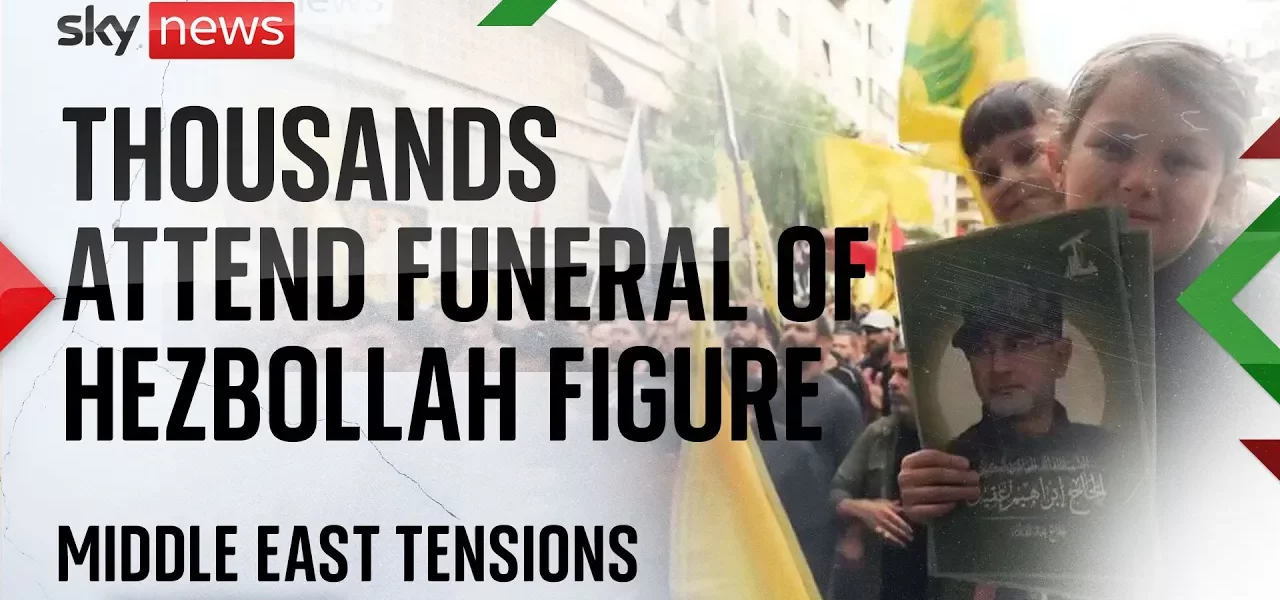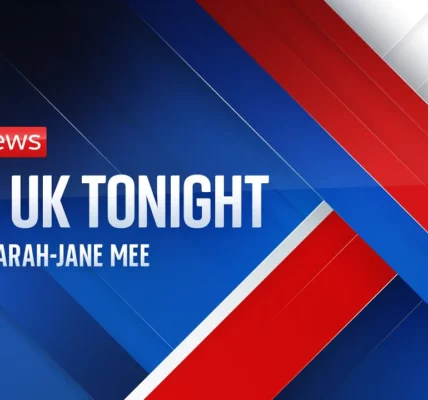Hezbollah’s Show of Strength in Beirut Amid Ongoing Conflict

In a significant display of solidarity, thousands gathered in the Lebanese capital to support Hezbollah amidst a backdrop of escalating violence and attacks. This article delves into the implications of these events, the reactions of various stakeholders, and the grim humanitarian toll of the ongoing conflict.
Introduction
In recent days, Beirut has witnessed a massive outpouring of support for Hezbollah, the powerful militant group allied with Iran. This gathering comes in the wake of escalating violence and tragic civilian casualties resulting from multiple airstrikes attributed to Israel. The loss of prominent Hezbollah commanders has intensified the group’s resolve, prompting threats of an unyielding fight against Israel. As tensions rise, this article explores the complex dynamics at play, including Hezbollah’s military posturing, the humanitarian crisis unfolding in Lebanon, and the broader geopolitical implications of these events.
Hezbollah’s Resilience and Threats
Despite suffering significant losses, Hezbollah’s leadership has vowed to respond with unprecedented force against Israel. The group’s Deputy Leader issued chilling warnings aimed at the West, declaring a “battle without limits.” This section highlights the main points regarding Hezbollah’s defiance and military capabilities.
Hezbollah’s Military Posturing
Hezbollah has demonstrated its military capabilities by launching long-range rockets into Israeli territory, marking a significant escalation in their response to recent attacks. The group released videos showcasing these actions, signaling their readiness to intensify hostilities. Key points include:
- Launch of long-range rockets for the first time since October.
- Increased military rhetoric and promises of tougher actions against Israel.
- Hezbollah’s strategy of rallying support through displays of military might.
Civilian Casualties and Humanitarian Crisis
The recent airstrikes have caused devastating civilian casualties, igniting outrage among the Lebanese populace and government officials. The toll on families has been particularly severe, with entire families lost in the bombings. This section provides a detailed examination of the humanitarian impact of the conflict.
Impact on Families
The bombings have resulted in the deaths of many innocent civilians, including children. Key incidents include:
- The destruction of apartment blocks in Beirut, leading to heavy casualties.
- The tragic loss of the Farz family, which included nine members and four young children.
- The death of Nia Gazi, a toddler known from social media, whose family remains unaccounted for.
These incidents have sparked outrage and calls for accountability, as recovery efforts struggle to reach those trapped beneath the rubble.
Political Reactions and Calls for Restraint
The Lebanese Prime Minister and his cabinet, who do not align with Hezbollah, have urged the militant group to exercise restraint in its response to Israeli attacks. However, the growing sentiment for resistance among the Lebanese people complicates this dynamic.
Government Stance
The government has publicly condemned the violence and called for measured responses. Key points include:
- Urgent appeals for a ceasefire and diplomatic solutions.
- Recognition of Hezbollah’s influence and the complex political landscape in Lebanon.
- Challenges in managing public sentiment that increasingly favors resistance against perceived aggression.
Public Sentiment
Many Lebanese citizens express a strong resolve to resist further attacks, feeling abandoned by the government while facing the reality of bombings. This sentiment includes:
- Fear of all-out war, yet a readiness to defend against aggression.
- Expressions of frustration at the international community’s inaction.
- Support for Hezbollah as a symbol of resistance.
Conclusion
The situation in Beirut remains precarious, with Hezbollah’s show of strength underscoring the potential for further escalation in the conflict with Israel. The humanitarian toll continues to rise, leaving countless families devastated by loss. As the international community watches closely, the call for a ceasefire and diplomatic negotiations becomes increasingly urgent. It is imperative that all stakeholders consider the consequences of continued violence and seek pathways to peace. For more insights on the ongoing conflict and related topics, explore our other articles on [Middle Eastern geopolitics](#) and [humanitarian crises](#).
“`




